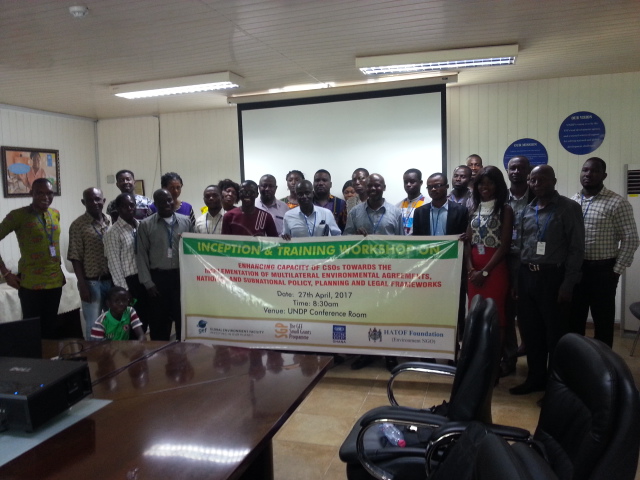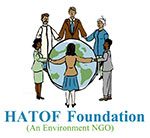Date: April, 27, 2017
Venue: UNDP Conference Room, Accra

Sustainable development has its goal as improving the negative effects of environmental pollution to satisfy the needs of present generation and at the same time ensuring the liveliness of the environmental factors for future generations. However, like the rest of the world, Ghana is faced with various environmental challenges that have both direct and indirect socio-political and economic impacts. The challenges include unsustainable exploitation of biodiversity and other natural resources, climate change, exposure to chemicals and other hazardous materials, land degradation, invasive and alien species, illegal trade in endangered plant and animal species, and indoor and outdoor air pollution. These challenges pose a great threat to the country’s sustainable development and green economy prospects.
In the quest to address the above challenges, Multilateral Environmental Agreements (MEAs) have come into force to improve global, regional and local environmental governance. The achievement of the objectives of MEAs is thus dependent on the extent to which the general public and decision-makers are aware and understand the content of the various conventions and their respective national obligations.
The role of CSOs cannot be over emphasized. They are well placed to support localised response to environment, economic, and social sustainability through provision of relevant information. Unfortunately, limited capacity to understand the Multilateral Environmental Agreements that govern these challenges and national mechanisms formulated for their implementation have been identified as militating against the effective engagement of environment CSOs in ensuring better environmental governance in Ghana.
HATOF Foundation launched a one year national capacity building programme in April, 2017 titled “Capacity Development and Knowledge Management for Civil Society Organizations towards the implementation of Multilateral Environmental Agreements and national and sub-national policy, planning and legal frameworks” Funded by the Global Environment Facility Small Grants Programme (GEFSGP) Ghana, the main objective of the project is to enhance capacity of civil society to contribute to the implementation of MEAs (Multilateral Environmental Agreements), national and subnational policy, planning and legal frameworks and to gain knowledge in best innovative practices and systems for inclusive sustainable development. Specifically the project seeks to;
- Enhance capacities of the CSOs to participate effectively in policy planning and formulation
- Develop capacities of CSOs as “Barefoot Consultants” to access bilateral and multilateral funds
- Establish “CSO-Government Policy and Planning Dialogue Platform” (which could be in partnership with the GEFCSO Network)
- Establish barefoot training institute to train local people and CSOs in best innovative practices in sustainable agriculture, low carbon technologies, biodiversity enterprise development etc.
